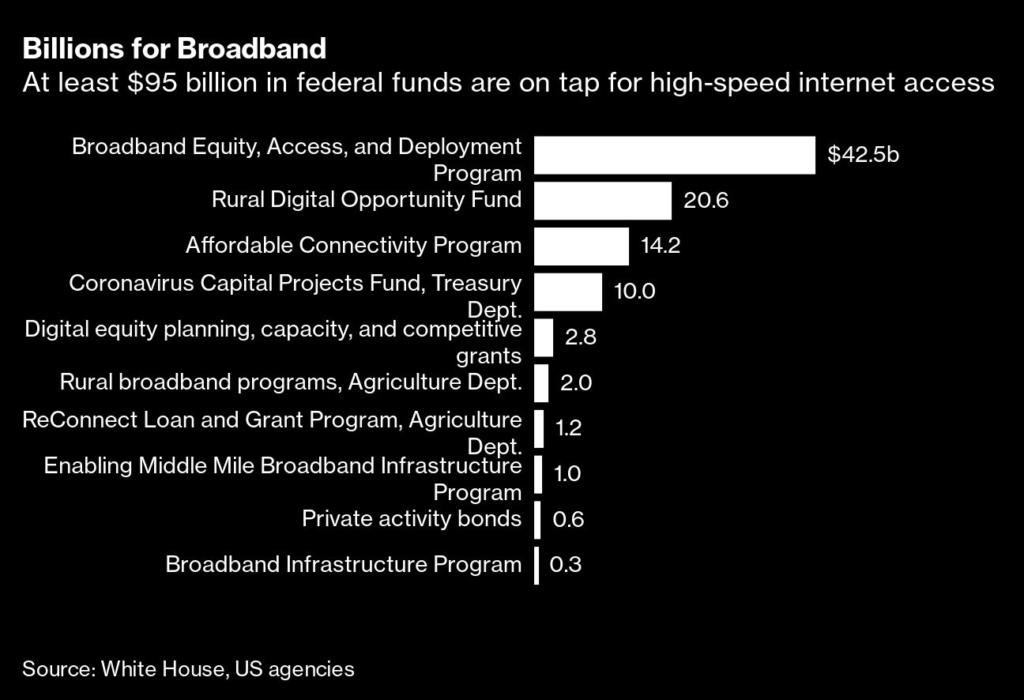(Bloomberg) — Charter Communications Inc. stock saw its biggest percentage drop in more than two years after announcing a large-scale broadband expansion plan that will cost far more than analysts anticipated.
(Bloomberg) — Charter Communications Inc.
stock saw its biggest percentage drop in more than two years after announcing a large-scale broadband expansion plan that will cost far more than analysts anticipated.
The second largest US cable company unveiled a three-year network spending budget starting with $10.7 billion next year, $1 billion more than analysts estimated.
The boost in spending will lead to “higher generational growth,” new chief executive officer, Chris Winfrey, told investors Tuesday evening.
The shift in spending toward infrastructure breaks from the industry’s lavish stock buyback trends and places a bigger bet on revenue growth that may be years away.
Charter is also facing competition from fiber optic network operators and wireless home broadband providers.
“We see this as defensive relative to fiber,” Rosenblatt Securities analyst Barton Crockett wrote in a note Wednesday.
Cable, phone and satellite companies are vying for some of the $100 billion in federal funds aimed at expanding broadband service to poorer and more rural parts of the country.
As past internet building booms have shown, one of the biggest risks to any venture is the high costs involved.
Charter fell as much as 14% Wednesday and was trading down 13.3% at $340.64 at 9:59 a.m.
in New York.
Charter and Comcast Corp., the largest US cable provider, have opted to take a different path than their telecom rivals. Instead of replacing their coaxial wires with higher-capacity fiber, the two companies have opted for a technology called DOCSIS 4.0 that uses amplifiers to allow existing cable systems to give customers multigigabit speeds.
Included in the overall capital spending plan is $5.5 billion over three years specifically for cable network upgrades to deliver higher-speed broadband connections to customers, Winfrey said.
The overhaul of the existing cable system is expected to cost about $100 per home passed and be completed by the end of 2024.
Last month, Comcast said it would spend about $200 per home passed to upgrade its systems using amplifiers. That number compares with about $1,000 per home for laying new fiber optic cable lines. Neither amount includes the cost of connecting all the way to a home.
(Updates with share move.)
More stories like this are available on bloomberg.com
©2022 Bloomberg L.P.











